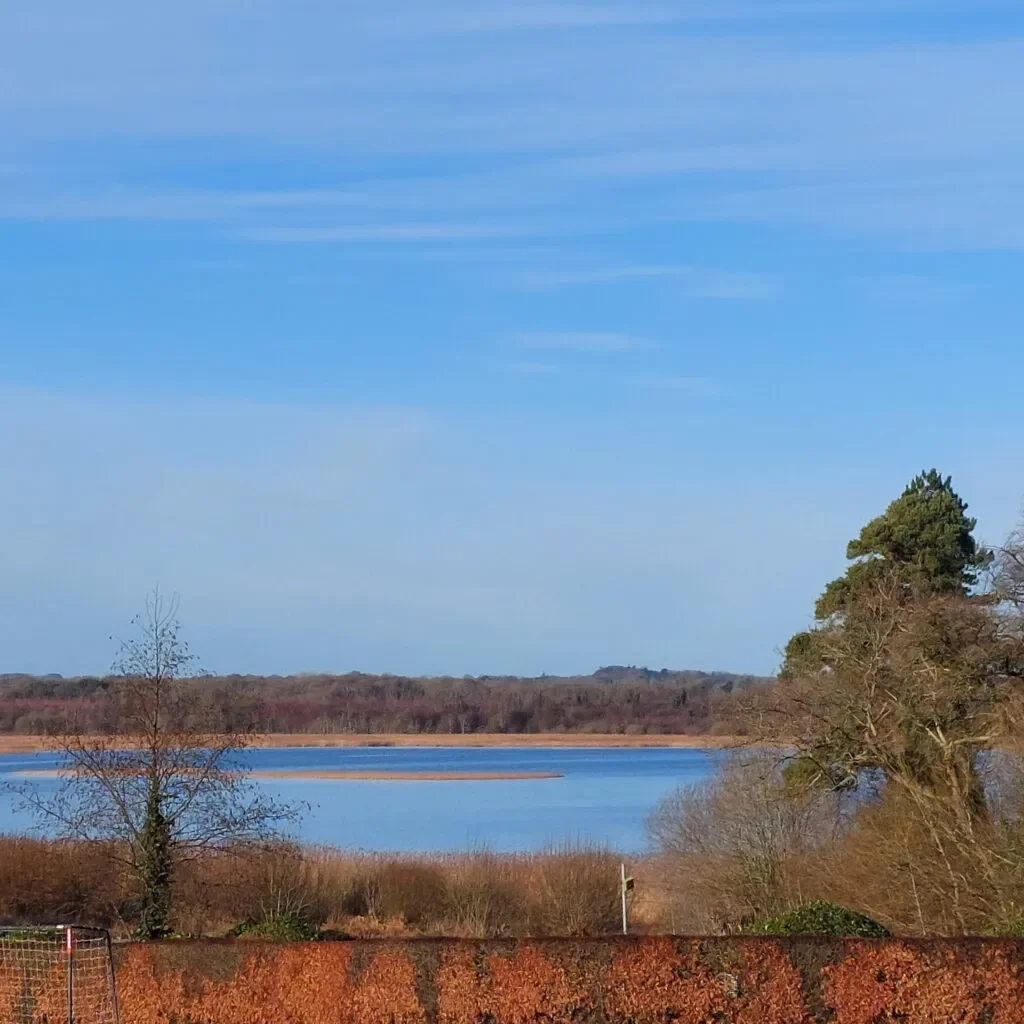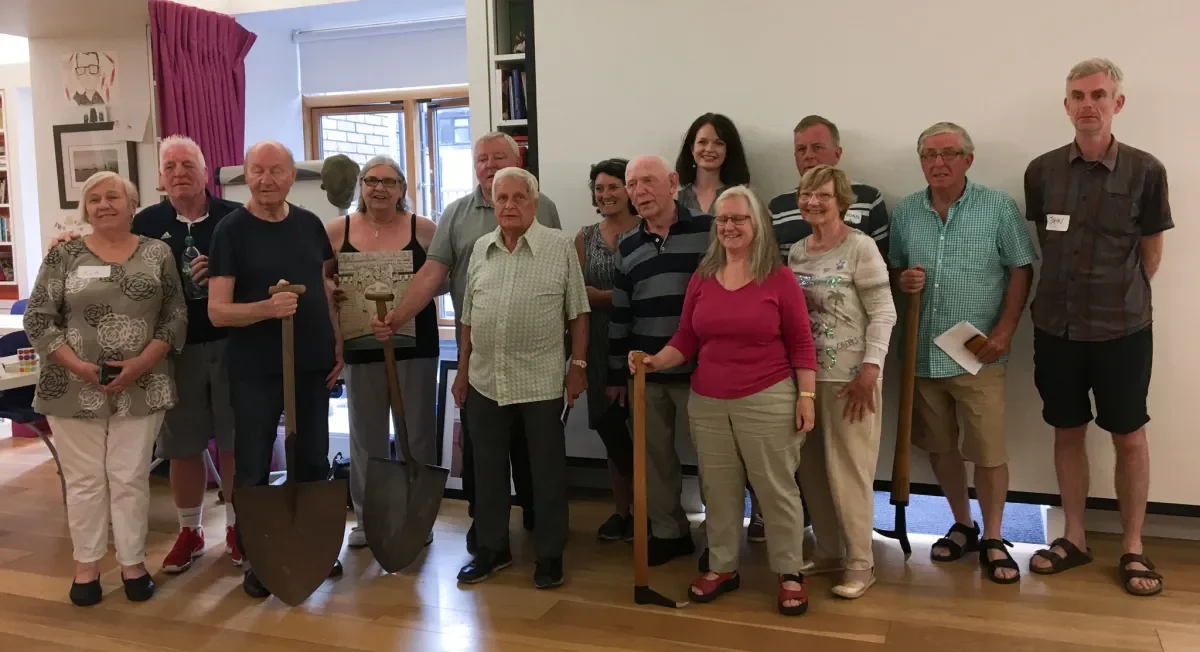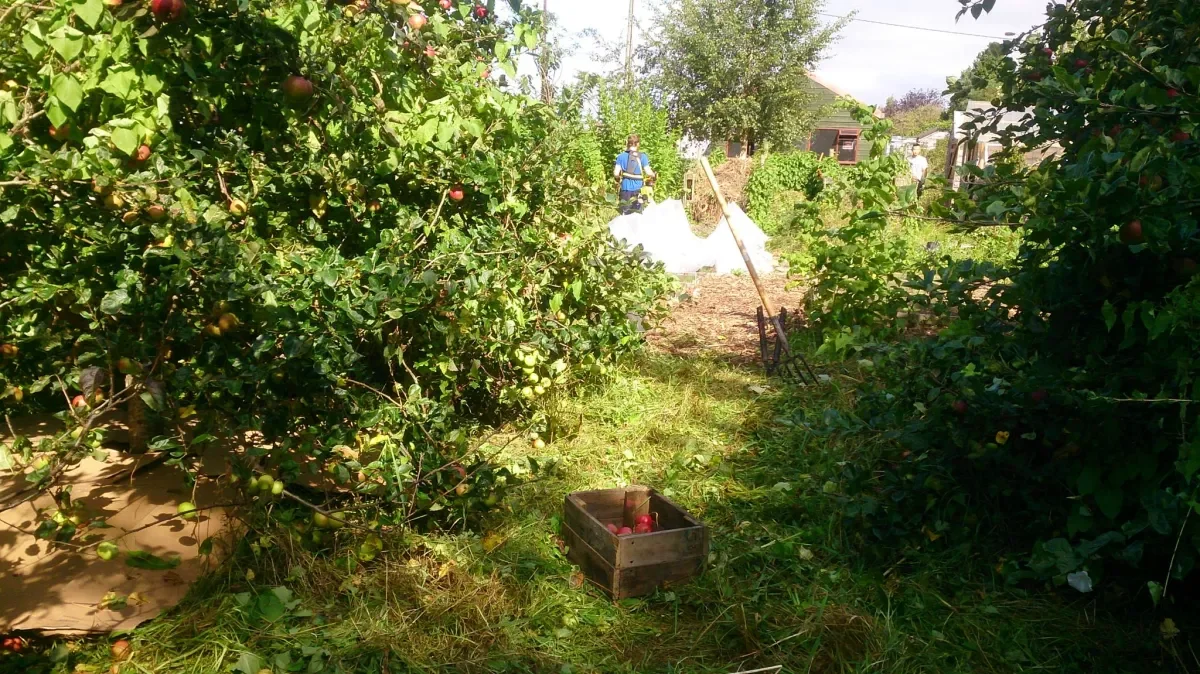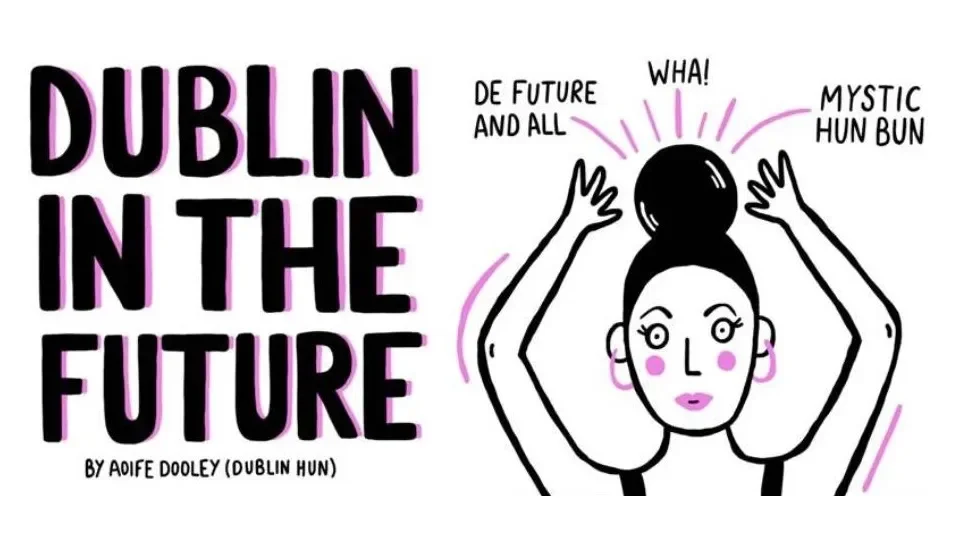
Projects Hub
Funded by the Department of Education’s ESD to 2030 strategy, this forum will explore the social pillar of ESD and will facilitate a space for deputy principals to share good practice on how they foster brave and inclusive school cultures.
View Website
Educate Together has partnered with GIY to encourage schools to participate in their programme. Target is to reach 25 schools for 25/26 academic year, 50 schools for 26/27 academic year, 75 schools for the 27/28 academic year.
View Website
Global Futures Oriented Research Collective on Education for Sustainability (G-FORCES) is funded by the USA National Science Foundation and aims to bring together international sustainability-oriented research networks from the natural sciences, social sciences and humanities to rearticulate the role of education in advancing planetary sustainability in formal and non-formal lifelong learning settings. The initiative pursues these goals by bringing together multi-team representatives from 10 diverse, globally-leading research networks. G-FORCES aims not merely to improve but to fundamentally reshape the relationship between education and sustainability research across global networks in ways that effectively integrate different knowledge ecosystems, bridge the research-practice divide, and prioritise education for planetary wellbeing and ecological justice. The project aims at:
- Facilitating innovative convergence research and authentic collaboration among the sciences, social sciences, and humanities.
- Enhancing the practical impacts of scholarship and the effectiveness of knowledge mobilization for advancing planetary sustainability.
- Advancing sustainability research and education models and practices grounded in a comprehensive vision of climate and ecological literacy that supports democratic outcomes, including peace, equity, and robust public participation.
- Creating enduring local-to-global networks of scholarship and action capable of rising to meet the multi-scalar challenge of the climate crisis through equitable collaboration.
- Broadening participation in sustainability research and education by addressing institutional barriers and structural limitations that presently limit integrated interdisciplinary climate research by creating new opportunities for diverse, inclusive leadership — especially for early-career and marginalized scholars, particularly from the global South.
This SCoTENS funded project is led by the Institute of Education in DCU and will be developed in partnership with University of Ulster from September 2024. The work will aim at exploring futures thinking with teacher educators that work in sustainable development to address the absence of knowledge in this key area. We will work with teacher educators and their students to understand and to develop creative approaches to imagine and aspire to preferred long-term futures for sustainable development.
Environmental Workshops and courses – we have a range of workshops that we are currently delivering to schools and youth groups; we have also a range of courses and modules suitable for Transition Year including Climate and Sustainability Module and the Youth for Sustainable Development resource pack. We also delivery Student Council Training in schools. We have a number of partnerships with different agencies to deliver workshops including Uisce Eireann.
Young Environmentalist Awards is our flagship programme, continuing to educate, inspire and empower young people to take action on issues of concern and of interest to them. It is running in the current academic year and the regional ECO-Dens judging sessions are being held in March 2025 with the annual Showcase and Awards Ceremony of over 1000 young people taking place in the Convention Centre Dublin on 8th May.
ECO-Choices programme is a Dublin based programme working with young people from Dublin city area and using nature as a tool for engaging and empowering young people.
Youth for Sustainable Development programme is an ongoing peer education programme for young people where young people are trained in sustainability, facilitation and leadership to work with their peers. It is run as an after-schools clubs programme in Dublin, Drogheda and other locations across Ireland. The programme has a toolkit. A QQI Peer education for sustainable development is delivered as part of the programme.
The project engaged 102 young people across Ireland, Slovakia, Latvia and Catalonia to co-produce a toolkit that focused on developing action competence and positive well-being among young people within the context of eco-activism. Overall the project produced 5 things:
- Educational Toolkit: a physical book designed to support young people throughout their eco-activism.
- Case Study: a paper documenting the transformative learning of project participants.
- Pedagogy Design Guide: a paper documenting the pedagogy design process of the project.
- E-learning Course: an online resource designed to increase access to the educational toolkit.
- Evaluation Tool: a framework for use alongside the educational toolkit, which guides the evaluation of transformative learning.
To create these outputs, the project partners hosted four international youth events to trial new teaching and learning methods and co-design a set of educational tools with collaboration from the youth. The resulting toolkit was launched on August 11th 2023.
The main objective of the Green Career Counselling with Nature in Mind project (2021-2024) is to develop resources for career guidance counsellors that raises awareness of the intersections of green career guidance, being in nature and personal wellbeing.
A key concern in Ireland (as in many countries across the globe) is the mental health and wellbeing of its youth and young people. RCE Dublin partners have identified an opportunity to enable young people to reconnect with nature, while also raising awareness of future opportunities for employment within the green economy. In doing so, the aspiration is that young people will become more aware that their future career and lifestyles choices can positively contribute to their personal wellbeing.
The Green Career Guidance with Nature in Mind project has the following objectives:
- Create a repository of case studies (digital video format) that show how sustainability can be the focus (or a feature) of diverse careers/ employment pathways
- Build lesson plans to accompany the case studies that can be used by Career Guidance teachers in post-primary settings
- Circulate the resources among career guidance practitioners, and teacher educators, across the island of Ireland
- Evaluate the effectiveness of the resources.
For more information, please contact: rcedublin@gmail.com

The Futures Studies: Envisioning and Realising Sustainable Futures for All project (2019-2023) is a new RCE Dublin initiative focused on exploring plausible, possible and desired futures with learners and citizens of all ages. This project will be underpinned by innovative and exciting methodologies honed by experts in the field of futures studies research. The project will progress through three key stages, as follows: 1) A series of vignettes of plausible (dystopian) futures will be constructed to illustrate what will happen if we continue to live in an unsustainable manner – these vignettes will be informed through data mining and analytical modelling of extant/ live data-sets (such as: socio-economic datasets, economic forecasting models, climate change models, etc.) and will be shaped through discourse with higher education colleagues from a range of disciplinary areas, 2) Learners and citizens across formal and non-formal learning contexts will be presented with the aforementioned vignettes of plausible futures, and will engage in discussion of alternate futures more aligned with the principles of sustainability, and, 3) The participants will be asked to back cast to the present, thus dialogue will be facilitated to ascertain how best the desired futures can be achieved- in other words how more sustainable forms of living and being can be enabled. This project specifically aligns with Sustainable Development (SDG) Goal 4: Quality Education, and furthermore raises awareness of key aims and objectives of the other 16 SDGs outlined within Agenda 2030. For more information, please contact Dr. Charlotte Holland by email on: charlotte.holland@dcu.ie
RCE Dublin is delighted to engage as a translational partner through collaboration with An Taisce in the PULCHRA project. The PULCHRA project aims to explore the open schooling concept in the theme “Cities as urban ecosystems”.. It encourages and supports students in urban schools to investigate environmental and sustainability issues in their localities with a focus on the topic “Cities as urban ecosystems”. The PULCHRA consortium consists of twelve (12) partners from ten (10) EU Member States (Greece, Czech Republic, Cyprus, Germany, Ireland (An Taisce), Italy, Latvia, Poland, Romania, and Sweden).
Τhe specific objectives of the project are:
- To develop and use a City Challenges Platform (including web based interaction and visualization modules) amenable to students, parents, educators, citizens, scientists, local administrators including a collaboration feature allowing experts to guide non-experts in terms of the interpretation of findings.
- To develop the City Science Teams with the participation of teachers and students, parents, professionals from the business community, scientists, local administrators, citizens, etc.
- To develop open source educational e-material, e-guidelines and smartphone app for analyzing the urban ecosystem and challenges demonstrating in detail the links between the cities as urban ecosystems and science (physics, chemistry, biology, geography, mathematics, materials science and informatics) and technology.
- To “Experience Science” through the organization of two pilot City Challenges, also open to the general public, in the science fields as related to the cities as urban ecosystems. Indicative themes to be explored are: “Converting school yards to open green spaces”, “Use of Earth Observation for the study of the urban ecosystem”, “Nature based solutions for climate mitigation plans at the neighbourhood scale”, “New materials for the built environment in urban ecosystems”, etc.
- To organize and implement, in coordination with local research centres, Universities and scientific associations, open activities, also in support of the City Challenges, to students, parents and citizens in general, under the theme “Meet the scientists – Introduce science in the city – approach the city as an urban ecosystem”.
- To bring real life projects as related to cities as urban ecosystems in the classrooms through focused collaborations with professionals and enterprises.
- To motivate students towards new technologies, mainly the use of Earth Observation (Copernicus program and Sentinel missions) and navigation tools, etc.
- To report the concept of the city as an urban ecosystem, as well as challenges, finding and solutions to the public through the City Reporters action.
For more information, contact Anthony Purcell at An Taisce on: apurcell@eeu.antaisce.org or visit the project website: https://pulchra-schools.eu/about/
The EfS Learning Ecologies in Higher Education project (2019-2022) has its roots in one of the original RCE projects, The Ethical Citizen project (2014-2018), which set-out to develop course materials and practices that could be used to promote the infusion of sustainability in the curricula of higher education. Interestingly, the new project is to adopt a more radical approach in that it will promote the type of EfS Learning Ecologies that not only raise awareness of key concepts, contexts, principles and practices of sustainability, but further inspires or provokes higher education students and staff to take action for sustainability in their daily lives.
The aim of this project is to: 1) Design and develop EfS educational resources and content that can be integrated across a range of disciplinary areas in higher education 2) Provide training for Higher Education academic staff in new and innovative EfS pedagogies (such as the Disruptive Learning techniques) that be used to engage higher education students in critical reflection on sustainability, and their own role in protecting the planet and peoples. 3) Devise a set of Sustainability-related competencies, and outline appropriate means of assessing same in higher education contexts. 4) Map the current integration of sustainability in DCU, and develop strategy for infusion of sustainability across all higher education programmes. The project is being led by DCU, with other RCE Dublin members (such as: Educate Together) partnering in the design and evaluation of the enterprise. This project specifically aligns with Sustainable Development Goal 4: Quality Education outlined within Agenda 2030.
For more information, please contact Dr. Charlotte Holland by email on: charlotte.holland@dcu.ie
The Stories of Dublin’s Docks and Dockers project is an initiative spearheaded within the partnership of Fighting Words and RCE Dublin. The Dublin Docklands project advances on a previous RCE project entitled: Dublin in the Coming Times (2015-2018) by continuing to recognise the centrality of storytelling in the lives of Dubliners. This project focuses on the often marginalised communities within the docklands, highlighting the manner in which daily life in this area, particularly working lives, has changed completely as Dublin city itself changes and evolves. The aim of this project is to:
- Document a changing environment, capturing the stories of an entirely changed and changing way of life, that might otherwise be forgotten.
- Engage citizens of Dublin in discussions around how the city has changed and how it might change the future, including a focus on the effects of this change on communities.
- Enhance cultural sustainability through documenting and preserving the experiences of a community, ensuring these are accessible to future generations.
- Facilitate interactions between older and younger citizens by organising intergenerational events where an exchange of experiences and ideas is possible, thus, providing opportunities for younger citizens to learn from what has happened previously in their communities and for older citizens to consider the hopes and dreams of their younger neighbours when it comes to the future of the area.
- Promote exchanges and discussions between retired dockworkers and other communities who have experienced a similar transformation if their lives and workplaces as a result of technological advances, for example, retired print workers.
- Publish and exhibit the work created to a wider audience of Dubliners to encourage debate and dialogue about their city as it continues to change, evolve and renew.

Creative workshops were organised for retired dockworkers, and facilitated in such a way so as to allow for the documenting of their stories and experiences using a variety of methods: writing their stories, oral storytelling/histories, visual methods (both creating artwork and using existing images), and use of archival materials. Furthermore, intergenerational workshops were arranged to facilitate the exchange of ideas and experiences between retired dock workers and children in local schools. The work created in these workshops has been collated, and, through partnership with the Print Museum, will result in a publication and public exhibition in Autumn 2019. The project is being led by Fighting Words, with other RCE Dublin members (such as DCU and An Tasice) partnering in the design and evaluation of the enterprise.
For more information, please contact Dr. Orla Lehane by email on: orla.lehane@dcu.ie
The key objective of the Horticultural Histories and Heritage Trails project is to foster engagement in environmental sustainability actions across the 5 DCU campuses. In 1883 the Albert College Agricultural College was established on what is now the Dublin City University campus. A primary focus of the College at that time was to investigate the cause of potato blight, which had been a significant factor in the Great Irish Famine (an Gorta Mór) leading to the death of between 20 – 25% of the Irish population (circa 1 million people) between 1845 and 1852. While today DCU has a significantly different remit, there are continued strong links with the National Botanical Gardens, located close by, with both institutions jointly offering a degree in Horticulture.

The original RCE Dublin project focused on the development and usage of the community gardens located on DCU Glasnevin campus, and the work-to-date has seen significant cultivation of the gardens, with vegetable produce available for purchase during the Summer and Autumn months each year. It is anticipated that a men’s shed will be completed in 2019, which will further enhance community engagement on site at the community gardens. DCU expanded from a single campus to a multi campus in 2016. Therefore, in the second phase of this project from 2019-2022, there is a new focus on the promotion of heritage trails within and connecting across the main four campuses. In doing so, staff, students and visitors will be introduced to the wild flora and fauna and associated histories of each campus of Dublin City University. The project is being led by DCU, with other RCE Dublin members (such as An Taisce and Dublin City Council) partnering in the development of the enterprise.
For more information, please contact Samantha Fahy by email on: samantha.fahy@dcu.ie
The Transforming Together project (2015-2019) aimed to examine the sustainability-related policies, practices and initiatives impacting primary and post-primary learners within Educate Together schools in Ireland. The project was led by Educate Together, with other RCE Dublin members (such as DCU) partnering in the evaluation of the proposed curricula and practices. To date, the project has resulted in a number of initiatives including the provision of a Residential Summer School on ESD offered to primary and post-primary level teachers, centred on facilitating phenomena based learning and outdoor education. Furthermore, it has culminated in an evaluation of the Educate Together Charter and Learn Together curriculum (both established within an ethical education framework) to ascertain their effectiveness in fostering quality education for all. These initiatives are expected to inform the principles and practices of infusing sustainability at school level within the broader Irish context. For more information on this, please contact Dr. Laura Dooley by email on: laura.dooley@educatetogether.ie
The Dublin In The Coming Times (DICT) project (2015-2018) aimed to raise awareness of sustainability issues through a programme of creative writing workshops and accompanying publications. The project was led by Fighting Words, with other RCE Dublin members (such as DCU) partnering in the design and evaluation of the enterprise. The citizens of Dublin were invited to reimagine their own city and what it might look like in the future in a series of workshops between January 2016 to June 2018, with the project reaching over 1,000 adults and 2,500 children and teenagers, with close to 200 volunteers involved during that period. To open the project, the Irish Times ran a series of pieces – nine in total – by professional writers, their work reimagining the city of Dublin in the future. The series, collated by Roddy Doyle, includes contributions from Sebastian Barry, Aoife Dooley, Christine Dwyer Hickey, Belinda McKeon, Paul Murray, Paula Meehan, Harry Clifton, Enda Walsh and Louise O’Neill. These pieces not only brought the project and its aims to a wider audience, encouraging the readership of the Irish Times to consider the future of Dublin, they were also used within workshop settings. The pieces were read and discussed by the participants, who considered the style and content of the work. This formed a basis for beginning the discussions around the theme in question.

Submissions from the various workshops were published on the project website, hosted by Dublin UNESCO City of Literature. Furthermore, a book, ‘Dublin in the Coming Times,’ was published and launched in November 2017, and made available in public libraries around Dublin city. There were also dedicated evenings for the various writing groups to come together and read their work, alongside established writers. Other events included a comics reading/performance at Fighting Words by Stray Lines Comics Collective, a play reading with professional actors reading the work created by Transition Year students from Coláiste Mhuire, Cabra, and an evening of readings organised by the Ballyfermot writers group as part of the Dublin International Festival of Literature. This project has now moved to its next phase which is centred on capturing and sharing of oral histories from Dublin’s docklands – read more about this under the active project: Stories of Dublin Docks and Dockers.
The Ethical Citizen project (2015-2017) aimed to develop Sustainability themed courses (with online and face-to-face elements) to introduce the concept of sustainability to staff and postgraduate students across Dublin City University. The initial course took the form of an environmentally themed course exploring post-carbon societies, titled: Post-Carbon World, led by Prof. Barry McMullin, Dr. Stephen Daniels and Samantha Fahy. The format was a series of 10 week-long “online conversations”, initiated each Friday by providing a small set of key online resources on a specific topic, via a dedicated loop online forum created for that week. The first part of the week (from Friday to Wednesday afternoon) was seen as an opportunity for participants to review, comment, and post questions about the target resources. Then, each Wednesday evening from 6.45pm-7.45pm (Dublin local time) there was a live webinar event, in which the facilitators considered the state of the online discussion so far, invited live questions and comments, and suggested further directions for research and debate. The participants were afforded opportunities to propose specific directions or additional areas that could be dynamically included as the course unfolded. The course materials were developed in 2015/2016, and the course was delivered in early part of 2016, with considerable interest among the postgraduate population in DCU. This project was completed in 2017, and is now superseded by the Education for Sustainability (EfS): Learning Ecologies in Higher Education project, which runs from 2019-2022.
The What if? Disaster Mitigation project (2015-2017) aimed to engage post-primary learners in discussion about possible causes and likely consequences of a sea-level rise of two-metres in the Dublin region. The project was led by Dublin City University, with other RCE Dublin members (such as An Taisce, Educate Together and ECO-UNESCO) and an Industry contact (Houghton Mifflin Harcourt) partnering in the design and development of the enterprise. Learners were asked to create a multi-media video clip to explain the reasons why this type of disaster might happen, what the impact would likely be, and what steps could be taken to mitigate or prevent it happening. The competition ran in a number of schools across the greater Dublin area in 2016-2017, and participants were provided with access to scientific experts, curated online resources and media training to support their creation of multimedia artefacts. The winners were presented with prizes at the National Young Environmentalist Awards Showcase and Awards Ceremony (organised by ECO-UNESCO) in Dublin in April 2017. This project may re-run in 2021 (subject to availability of funding) to further enable post-primary learners to explore the consequences of pandemics, such as the ebola virus or avian flu.
The Green Teen transitions project (2015-2017) aimed to enhance online supports being provided by ECO-UNESCO, a partner of RCE Dublin, to enable unemployed youth (aged 16-19) transition more readily towards employment or further education in the green economy. The project set out to:
- Design and deliver online ESD training to unemployed youth on concepts, contexts, principles and practices of sustainability.
- Provide a facility for online mentoring and educational support for youth transitioning towards further education/ employment in the green economy.
- Increase youth transitions towards further education and/ or employment.
The project was led by ECO-UNESCO, with other RCE Dublin members (such as DCU and An Taisce), providing support at various stages in the enterprise. A blended online ESD model was deployed, with a focus of ‘flipping the classroom’ so that 50-80% of the course was made available using social media and multimedia formats on Moodle, and the remainder consisted of face-to-face tutorials at participating institutions. The specialised training modules on sustainability were made available to participants in advance of and during the work-place based internship. Following the pilot phase and roll out of online training and supports throughout the wider Dublin region in 2016, the online elements were fully integrated with the official ECO-UNESCO Green Pathways project by 2017, and thus the work of the Green Teen Transitions project was completed. More information about ECO-UNESCO Green Pathways projects can be accessed here.
